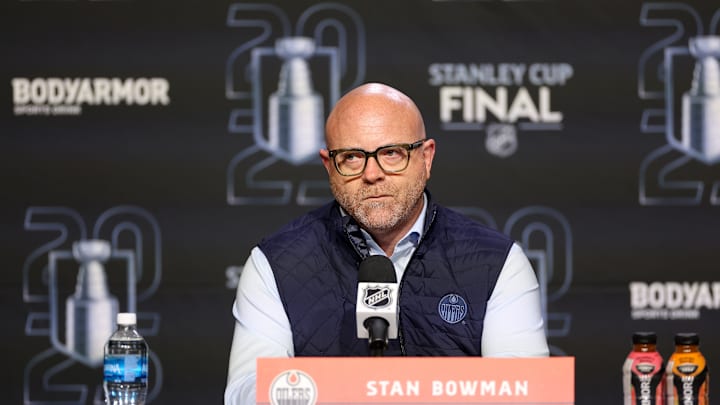In July, the National Hockey League (NHL) and it's Players Association (NHLPA), reached a Memorandum of Understanding (MOU) to extend the Collective Bargaining Agreement (CBA) for four more years, through 2030.
This agreement meant labour peace and guaranteed NHL hockey for the rest of the decade, which is a welcomed change with the NHL undergoing three lockouts in roughly 30 years. This also means that the Edmonton Oilers can continue to contend for the Stanley Cup, uninterrupted.
However, it is not all sunshine and rainbows as the MOU is set to bring about many large-scale changes that will close loopholes and change things that have been status quo for a long time. There are three big changes in specific that could negatively impact a contending team, like the Oilers.
Playoff salary cap
The implementation of a playoff salary cap and the closing of the long dreaded loophole is one of the biggest changes that the new CBA will bring about.
Many people would consider this a welcomed change, there have been people begging for a salary cap in the playoffs for years. Dating back to 2015 when the Chicago Blackhawks placed superstar player Patrick Kane on Long-Term Injured Reserve (LTIR) right until the playoffs before activating him. Many fans saw this as convenient timing and there was similar backlash to Mark Stone with the Vegas Golden Knights, with many fans accusing them of exploiting the loophole as well.
This is something that even the Oilers have benefitted from with Evander Kane being used in a similar scenario. Now moving forward, there is going to be a salary cap in the playoffs, which teams will have to comply with in order to compete. Essentially, teams will have to be under the salary cap when they dress their roster every night. Meaning, the team can still call-up 'black aces' like they always do but the actual 20-man roster hitting the ice, must be cap compliant.
No more double-retention
Another announced change that will take effect in the coming season(s) is the NHL outlawing teams from double-retaining on players at the deadline. Before, a selling team would trade a player to a buying team, and many times retain the salary of the player being exchanged. In some instances, in order for the buying team to receive extra savings, they would include a third-party team to retain even more.
This was recently done at this past deadline with the Oilers acquiring forward Trent Frederic in this way at the 2025 NHL trade deadline. Originally with the Boston Bruins, he was traded to the New Jersey Devils who then sent him to the Oilers after retaining his salary a second time.
Now, this will not be allowed. Instead there will be a new rule that will forbid a player's contract from being retained within 75 regular season days of the first retention. This means that 75 days during the regular season would have to pass before a player's cap hit can be retained again. Since the wording is 'regular season day' this means that this can cross over into multiple NHL seasons with the playoffs and offseason not counting.
No paper moves
A way that teams would sometimes implement small amounts of cap savings would be by making 'paper transactions' by sending a player down to the minors on days off and then immediately recalling them. The catch being that players would not be sent down at all and instead it would just relieve a team of that player's salary cap hit for one day, allowing them to accrue more cap space for the NHL trade deadline.
Under the new MOU, this will be outlawed and players who are sent down will have to dress a game with the farm team before being able to be recalled. Although the cap savings were relatively minimal, this will harm a team like the Oilers who may use this tactic to gain a slight advantage heading into the trade deadline.
Many fans are worried that these moves will make the trade deadline much less eventful -- which is very possible -- but I think that teams will just invent new ways to exploit the system. It will be hard and there may be time between now and then but you cannot overlook the team that is desperate to gain any competitive advantage in a game of inches.
